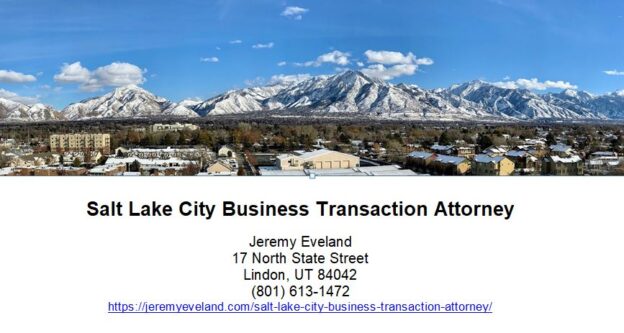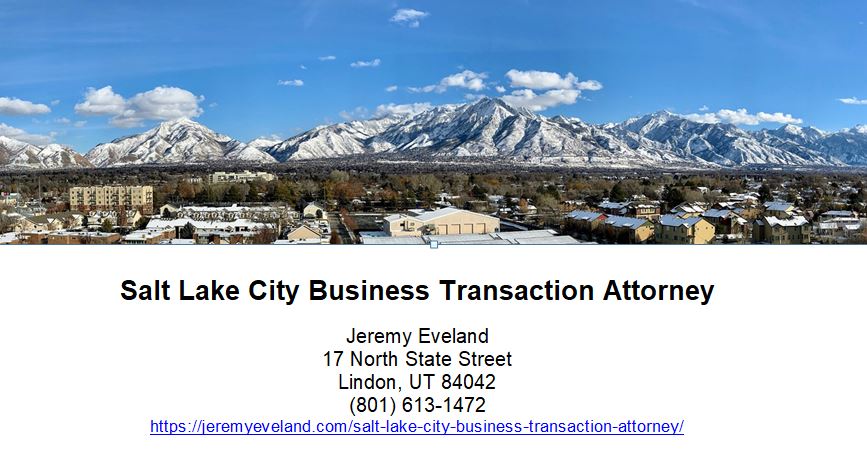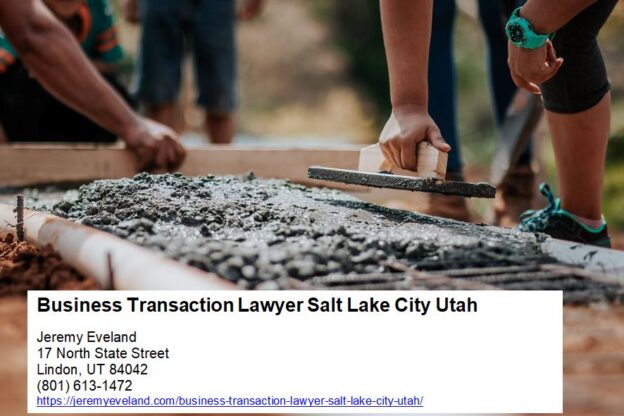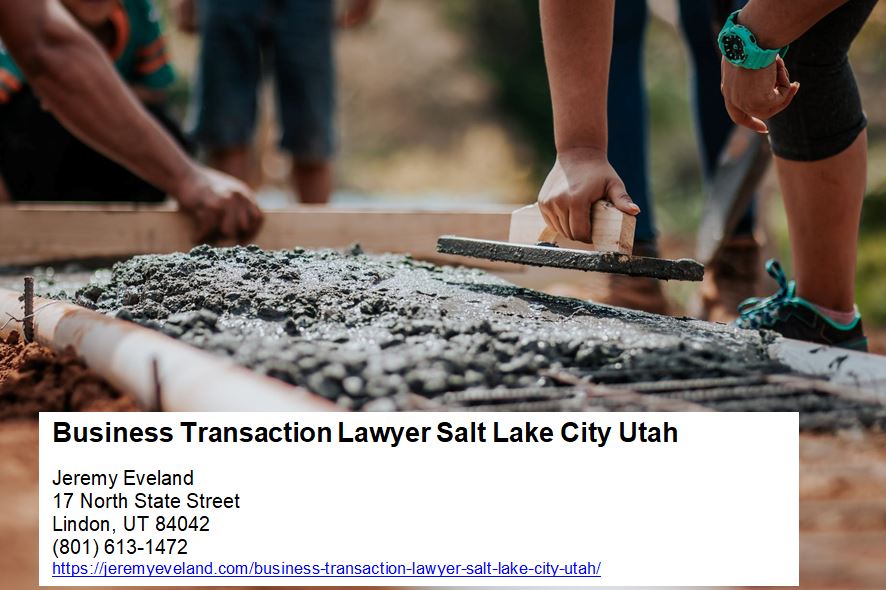Due Diligence For Buying A Utah Business
So, you're considering buying a business in Utah? That's an exciting venture, but before you sign on the dotted line, it's essential to perform your due diligence. This process involves diving deep into the financial health of the business, evaluating its legal and regulatory compliance, and much more. It's about taking control of your investment by understanding every aspect of the company before making a commitment.
In this comprehensive guide, we'll walk you through some key areas to investigate during your due diligence process. From analyzing market and industry trends to reviewing the company's assets and liabilities – we've got it all covered. You'll also learn about examining business operations and processes as well as conducting background checks on key personnel. Remember, knowledge is power – knowing what you're getting into can help mitigate potential risks down the line.
Key Takeaways
- Thoroughly analyze the company's financial statements, including revenue trends, profit margins, and debts.
- Evaluate legal compliance by reviewing permits, licenses, zoning compliances, and litigation cases.
- Analyze market conditions and industry trends to determine the company's worth.
- Identify potential risks and develop mitigation strategies.
Assessing the Financial Health of the Business
Don't be fooled by a shiny exterior; it's crucial to dig deep, exploring the company's financial bones to ensure you're not buying into a money pit. Conducting thorough due diligence is more than just a cursory glance at the balance sheets – it requires a comprehensive analysis of every facet of the business's finance. Just like you would never buy a house without investigating its structural integrity, similarly, buying a business demands an in-depth inspection of its financial health. Be prepared to examine everything from cash flow statements and profit margins to debts and assets.
The valuation process should be meticulous and rigorous, leaving no stone unturned. Start with the basics: revenue trends, profit margins, overhead costs – these are all key indicators of how well the business has been performing financially. But don't stop there; delve deeper into aspects such as current liabilities, outstanding loans or lines of credit that could impact future profitability. Scrutinize accounts receivable for any signs of chronic late payments or bad debts which might indicate potential problems down the line.
However, understanding numbers alone isn't enough; translating them into actionable insights is what sets successful investors apart from others. For instance, if your due diligence reveals that most profits are coming from only one product or service line while others are draining resources – it may signal over-dependence on a single source and potential vulnerability should market dynamics shift unexpectedly.
Additionally, remember that past performance doesn't guarantee future success – consider external factors such as industry trends and economic conditions that could influence future growth.
Remember this: knowledge about finances empowers you to make informed decisions about whether or not to proceed with purchasing the Utah-based business under consideration. As you wrap up your scrutiny of financial health and feel confident in your understanding of where things stand currently—warts and all—it's time now for another level of inquiry: legal compliance checks. This next phase will involve evaluating regulatory adherence because falling foul with law can lead to serious repercussions that could threaten your investment's very foundation — but we'll dive deeper into this topic in our subsequent discussion.
Evaluating the Legal and Regulatory Compliance
Before you seal the deal, it's crucial to thoroughly scrutinize whether the company's in compliance with all legal and regulatory requirements – a step that often uncovers hidden liabilities. As part of your due diligence for buying a Utah business, engaging a seasoned lawyer who is well-versed in general business transaction matters could save you from future headaches. They'll be able to look at the company's permits, licenses, zoning compliances, and any pending or previous litigation cases. With such an expert on board, you can be rest assured that no stone will be left unturned.
Remember this isn't just about ticking boxes; it's about understanding what those boxes contain. For instance, delve into how labor laws affect the company's operations – are they compliant with wage and hour regulations or are there potential lawsuits lurking? Are there any environmental compliance issues that might result in hefty penalties down the line? This level of detail might seem daunting but remember, knowledge is power. The more information you have now, the fewer surprises you'll encounter when it comes time to take over.
That said, don't limit your focus to federal and state laws alone. Local ordinances can also significantly impact operations so ensure that these too are included in your due diligence checklist for buying a Utah business. In addition, consider industry-specific regulations such as health and safety standards if applicable to your target enterprise. Delving into these nitty-gritties provides clarity on how these factors may influence profitability or pose risks.
After evaluating legal and regulatory compliance meticulously using this approach ,you're one step closer towards making an informed decision about purchasing this business; however though satisfying legalities is paramount,it shouldn't stop here! Now armed with substantial insights into the company's legal standing,you're well poised to shift gears towards another critical facet: analyzing market trends along with industry dynamics which form vital components of your overall due diligence process for acquiring a Utah-based firm.
Analyzing the Market and Industry Trends
Immersing yourself in the ebbs and flows of market trends, like a seasoned surfer riding the ocean's waves, is an essential next step in your journey to acquiring this enterprise. As part of your due diligence process, an in-depth analysis of market conditions and industry trends should not be overlooked. This will give you a clear understanding of where the business stands within its sector and potential growth or decline areas. A thorough market research coupled with a microscopic view on industry trends could prove instrumental in accurately determining the company's worth for an optimal business valuation.
To carry out this analysis effectively:
- Identify key competitors: Understanding who they are, what they offer, their strengths and weaknesses can reveal opportunities or threats that might impact your prospective business.
- Assess customer behavior: Determine who buys from this business, why they choose it over others and if their loyalty is likely to continue.
- Monitor economic indicators: These give insights into broader market conditions that may influence the industry's health.
- Examine regulatory environment: Be sure you understand any rules or legislation that might affect industry trends or create barriers to entry.
During this stage, don't shy away from seeking expert advice when necessary. Engage financial analysts or industry insiders to help dissect complex data or interpret intricate patterns spotted during your research phase. They can also assist with critical aspects such as forecasting future revenue streams and offering advice on accurate business valuation based on current market dynamics.
Remember though, while analyzing these external factors, always link them back to how they impact the specific Utah-based enterprise you're eyeing up for acquisition. It's one thing knowing about general macroeconomic factors influencing industries; it's another understanding how these translate into micro-level implications for your intended purchase.
This comprehensive examination of market dynamics should not only provide insight into present circumstances but also help project future scenarios for the firm under consideration. With this newfound knowledge at hand, you'll have more control over negotiations during acquisition discussions – positioning yourself strategically for success without being blindsided by unforeseen shifts in market forces or unexpected changes in industry norms.
Next up on our due diligence journey lies another crucial aspect – assessing the company's assets and liabilities which we shall delve into subsequently to ensure no stone remains unturned before making an informed decision about acquiring this Utah based enterprise.
Reviewing the Company's Assets and Liabilities
Now, it's time to roll up your sleeves and dig deep into the company's assets and liabilities. This is a pivotal part of the due diligence process when considering a Utah business purchase. Assets include tangible items like property, equipment, inventory and cash, as well as intangible ones such as intellectual property, customer lists and good will. On the other hand, liabilities comprise everything that the company owes – from mortgages and loans to accounts payable. It's important you keenly review these elements with an analytical eye because they directly impact the value of the business.
In this stage of due diligence for buying a Utah business, you'll want to employ various financial analysis techniques. These should help you gauge if there are any hidden debts or potential issues that could affect your investment negatively in future. For instance, check whether there are any contingent liabilities – those that may arise depending on a certain outcome of future events- buried in footnotes or off-balance sheet entries. Similarly, ensure you understand how assets are valued; inflated valuations can lead to an overpriced acquisition.
Of course, reviewing a company's assets and liabilities isn't just about number crunching or legal compliance; it's also about understanding what those numbers mean for your prospective venture. The balance between assets and liabilities can provide clues about management competence–for example: Are profits being reinvested intelligently? Is debt being managed effectively? From here you can then determine if it aligns with your own strategic vision for managing finances post-acquisition.
To wrap up this section of our comprehensive review on due diligence for purchasing a Utah business: meticulous examination of the company's financial health is critical not only in determining its fair market price but also in forecasting its profitability under new ownership. Now we're ready to shift gears towards examining another crucial dimension –the actual running operations within the business itself–which will further illuminate what exactly it is you're potentially investing into.
Examining the Business Operations and Processes
Peeling back the curtain on a company's day-to-day operations and processes is just as important as counting the coins in its coffers. As part of your due diligence when buying a Utah business, you must dive deep into its daily routines to fully understand how it functions. This includes observing and scrutinizing everything from production methods to customer service protocols. By doing so, you gain a well-rounded view of what makes this business tick, revealing potential strengths or weaknesses that could impact your decision.
Here are some key areas to focus on:
- Production or service delivery: How does the company create its products or deliver its services? Is the process efficient and cost-effective?
- Sales and marketing strategies: What tactics does the company use to attract clients and boost sales? Are these approaches successful?
- Customer relations: How does the business interact with its customers? Is there a system in place for handling complaints or feedback positively?
- Supply chain management: Does the company have solid relationships with suppliers? Can these ties be maintained post-acquisition?
- Employee roles and responsibilities: Who does what in this business? Are duties clearly defined, roles filled appropriately, and staff properly trained?
The financials might look appealing at first glance but remember that numbers alone don't tell the whole story behind any thriving Utah business. You need to delve into their operational systems too – how they generate income, manage expenses, handle inventory – basically every detail that keeps them running smoothly. It's also crucial to consider how adaptable their current processes are – will they align seamlessly with your management style or will significant changes be necessary?
By conducting an exhaustive examination of all aspects of business operations during your due diligence process you'll avoid any unwelcome surprises post-purchase. Not only will this give you peace of mind but it allows for accurate valuation calculations which can influence negotiation terms favorably. Now that we've got an understanding of operational aspects let's move onto another critical component – background checks for key personnel within the organization.
Conducting Background Checks on Key Personnel
You've looked into the operational aspects, but what about the people behind the scenes? It's time to turn your attention to conducting background checks on key personnel within the organization. As a business buyer, you are expected to leave no stone unturned during the due diligence process. In Utah, this includes not only understanding every aspect of the business' operations and financials but also scrutinizing those who run it. After all, purchasing a business is not just about buying assets or customer lists; it involves taking over a team of people whose skills and reputation could greatly influence your success.
Start by identifying who these key personnel are: they might include top executives, managers, or even crucial technical staff. Then begin an in-depth investigation into their professional history. Check for any criminal records or legal disputes that may raise red flags about their character or professionalism. You can utilize various online platforms and agencies that specialize in conducting such investigations efficiently and comprehensively.
Understanding their employment histories will give you insights into their expertise and reliability. Were there gaps in employment? Frequent job changes? These may indicate potential issues with commitment or performance. Also, analyze their previous roles and achievements as these will help you gauge if they have the requisite experience for their current positions in the company you wish to purchase.
By thoroughly vetting key personnel, you can gain control by being confident that you're inheriting a capable team when purchasing your new venture in Utah. This part of due diligence ensures transparency and mitigates risk associated with human capital within your prospective investment.
Now that we have unraveled pertinent information on background checks on key personnel let's shift our focus toward assessing what competition lies ahead for us in this market landscape.
Assessing the Competitive Landscape
Just as a seasoned chess player analyzes the board before making a move, it's vital to evaluate the competitive landscape you'll be stepping into. Due diligence for buying a Utah business requires an in-depth assessment of your potential competitors. This isn't just about who they are, but also what they do, how well they do it, and what makes them successful. The key here is to understand their strengths and weaknesses while identifying opportunities for your potential acquisition to carve out its own niche or improve upon existing offerings.
The competitive landscape comprises various elements that can significantly impact your business acquisition's market value and success. These include:
- Market Share: Who are the major players in this industry? Do they have a significant portion of the market share?
- Competitive Differentiation: What sets these businesses apart from each other? Are there unique selling propositions (USPs) that make one enterprise more appealing than another?
- Regulatory Environment: How does legislation affect operations within this sector? Are there any pending legal changes that could create challenges or opportunities?
Now that you've gathered this information, analyze it meticulously. Look at trends over time; if a competitor has been gaining market share rapidly, try to determine why that is happening. Is it due to superior products or services, better marketing strategies, or perhaps pricing advantages? A detailed analysis should give you insights into possible strategies for your own venture post-acquisition and help set realistic expectations about its growth potential and profitability.
Yet understanding the competitive landscape isn't enough without factoring in risk management – another crucial aspect of due diligence when buying a Utah business. Your next focus should be on uncovering any potential pitfalls associated with your chosen enterprise – such as financial instability or legal issues – and coming up with mitigation strategies accordingly.
Considering Potential Risks and Mitigation Strategies
After thoroughly understanding the competitive landscape, it's high time you shift your attention towards identifying potential risks and developing strategies to mitigate them. When performing due diligence for buying a Utah business, considering potential risks and mitigation strategies is an essential step. As a prudent business buyer, you need to be able to identify all foreseeable issues that could impact the viability of the acquisition in any manner. This includes financial, operational, legal, and market-related concerns.
Let's imagine how this might look as a table:
| Potential Risk | Impact on Acquisition | Mitigation Strategy |
|---|---|---|
| Financial Instability | Could lead to loss of investment or bankruptcy | Thorough financial audit by a reputable firm |
| Legal Issues (e.g., lawsuits) | Might result in fines or damage reputation | Consultation with an experienced business attorney |
| Operational Problems (e.g., outdated technology) | May affect productivity and profitability | Comprehensive assessment of all operational processes |
| Market Competition | Can decrease sales and market share | Detailed analysis of competitor activities |
The above matrix will help guide your thought process as you dive into this stage of due diligence for buying a Utah business. Remember that while some risks can be quantified monetarily – such as estimating the cost of upgrading outdated technology – others may have more intangible impacts like damage to brand reputation from existing legal issues. Therefore, having a detailed understanding of every aspect is crucial before making any decision.
Remember, risk identification is just one part of the puzzle; devising effective mitigation strategies are equally important. You must look beyond traditional risk management measures and consider novel approaches that align with changing market dynamics. For instance, if heavy competition presents itself as a major challenge, perhaps your strategy could involve acquiring unique capabilities that set your business apart from competitors instead of merely boosting marketing efforts or slashing prices. So keep thinking outside the box!
Frequently Asked Questions
What are the tax implications of purchasing a business in Utah?
Don't worry, tax implications aren't as daunting as you might think. In Utah, you'll face sales and use taxes on any tangible assets purchased. Understanding these nuances allows you to navigate your business purchase confidently.
How can you maintain the company culture during the transition period?
Maintain company culture by engaging with staff, understanding their values, and reassuring them of stability. Be transparent about changes and involve employees in the transition process. This fosters trust and preserves the existing corporate environment.
How do I negotiate the purchase price of a Utah business?
Just like haggling at a yard sale, negotiating a business purchase price is an art. You'll need to scrutinize the business's finances, understand market valuations, leverage legal advice and confidently present your offer.
Are there any specific licenses or permits required for business operation in Utah not covered by legal and regulatory compliance?
Yes, apart from regulatory compliance, you'll need specific permits like a Sales Tax License, Employer Identification Number (EIN), and possibly professional/occupational licenses depending on the nature of your business in Utah.
What are some strategies for building good relationships with existing clients after purchasing the business?
Building bridges begins by being proactive. Promptly provide top-notch service, communicate consistently, and appreciate their patronage. Understand their unique needs to upgrade offerings accordingly. Remember, retention reigns supreme in your newly acquired enterprise's success story.
Areas We Serve
We serve individuals and businesses in the following locations:
Salt Lake City Utah
West Valley City Utah
Provo Utah
West Jordan Utah
Orem Utah
Sandy Utah
Ogden Utah
St. George Utah
Layton Utah
South Jordan Utah
Lehi Utah
Millcreek Utah
Taylorsville Utah
Logan Utah
Murray Utah
Draper Utah
Bountiful Utah
Riverton Utah
Herriman Utah
Spanish Fork Utah
Roy Utah
Pleasant Grove Utah
Kearns Utah
Tooele Utah
Cottonwood Heights Utah
Midvale Utah
Springville Utah
Eagle Mountain Utah
Cedar City Utah
Kaysville Utah
Clearfield Utah
Holladay Utah
American Fork Utah
Syracuse Utah
Saratoga Springs Utah
Magna Utah
Washington Utah
South Salt Lake Utah
Farmington Utah
Clinton Utah
North Salt Lake Utah
Payson Utah
North Ogden Utah
Brigham City Utah
Highland Utah
Centerville Utah
Hurricane Utah
South Ogden Utah
Heber Utah
West Haven Utah
Bluffdale Utah
Santaquin Utah
Smithfield Utah
Woods Cross Utah
Grantsville Utah
Lindon Utah
North Logan Utah
West Point Utah
Vernal Utah
Alpine Utah
Cedar Hills Utah
Pleasant View Utah
Mapleton Utah
Stansbury Par Utah
Washington Terrace Utah
Riverdale Utah
Hooper Utah
Tremonton Utah
Ivins Utah
Park City Utah
Price Utah
Hyrum Utah
Summit Park Utah
Salem Utah
Richfield Utah
Santa Clara Utah
Providence Utah
South Weber Utah
Vineyard Utah
Ephraim Utah
Roosevelt Utah
Farr West Utah
Plain City Utah
Nibley Utah
Enoch Utah
Harrisville Utah
Snyderville Utah
Fruit Heights Utah
Nephi Utah
White City Utah
West Bountiful Utah
Sunset Utah
Moab Utah
Midway Utah
Perry Utah
Kanab Utah
Hyde Park Utah
Silver Summit Utah
La Verkin Utah
Morgan Utah
Due Diligence For Buying A Utah Business Consultation
When you need help from a Due Diligence Attorney, call Jeremy D. Eveland, MBA, JD (801) 613-1472 for a consultation.
Jeremy Eveland
17 North State Street
Lindon UT 84042
(801) 613-1472
Related Posts
How to Calculate Overtime Pay in Utah
Business Lawyer Cottonwood Heights Utah
Understanding Utah’s Consumer Protection Laws
Comprehensive Guide To Hiring A Business Lawyer
Business Lawyer Springville Utah
Mergers and Acquisitions from a Legal Perspective
Business Lawyer Eagle Mountain Utah
Understanding Anti-Trust Laws in Utah
Business Lawyer Cedar City Utah
Understanding LLC Laws in Utah
Business Lawyer Kaysville Utah
Understanding Utah’s Non-Profit Laws
Business Lawyer Clearfield Utah
Business Lawyer American Fork Utah
How To Handle Customer Complaints In Utah
Business Lawyer Saratoga Springs Utah
The Role of Business Law in Protecting Minority Shareholder Rights
What Are The 4 Different Types of Business Law?
Business Lawyer Washington Utah
Business Lawyer South Salt Lake Utah
Legal Requirements for Utah Technology Startups























